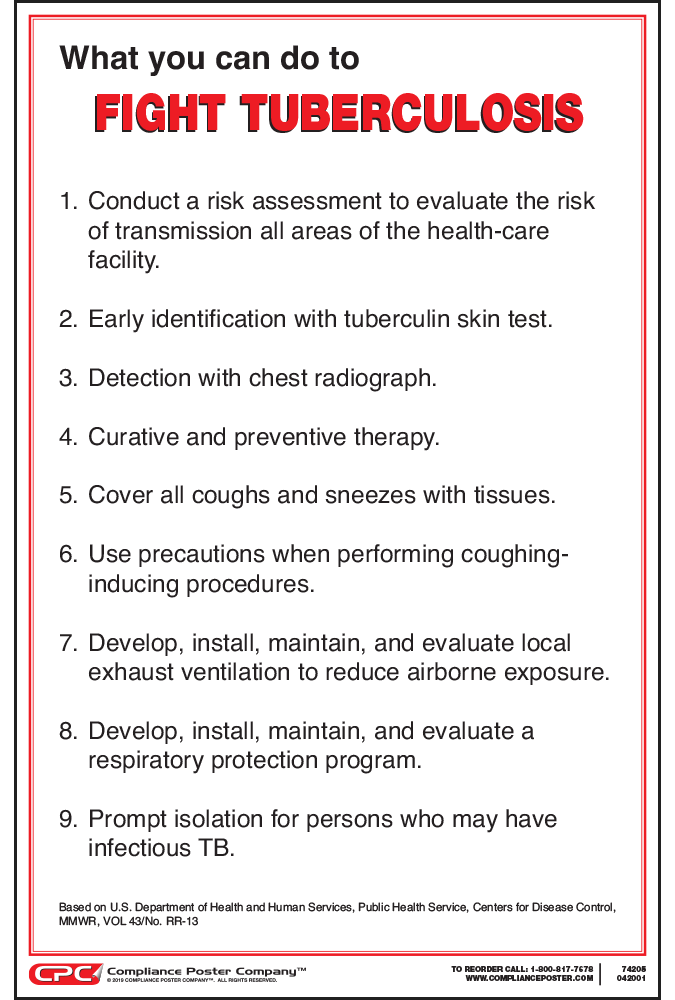Who should post the Fight Tuberculosis Poster?
The general duty clause of the OSH Act requires employers to provide their employees with a workplace free from recognized hazards causing or likely to cause death or serious physical harm, including workplace transmission of Tuberculosis (TB). Although TB case rates have declined over the last two decades, the disease continues to pose serious threats to workers, particularly workers in healthcare settings. As a result, OSHA continues to enforce employers’ obligations to protect affected employees against the hazards associated with TB.
Posting the Fight Tuberculosis Poster in healthcare settings reminds health care employers and workers to remain vigilant against occupational exposure by following TB safety practices in workplaces at higher risk for TB transmission:
- TB Risk assessment
- TB Testing
- TB Infection control measures
What is tuberculosis (TB)?
- Tuberculosis (TB) is a disease caused by bacteria called Mycobacterium tuberculosis that are spread from person to person through the air. TB usually affects the lungs, but it can also affect other parts of the body, such as the brain, the kidneys, or the spine.
- Not all people infected with TB bacteria have TB disease. Persons with TB disease usually have symptoms, are considered infectious, and may spread TB bacteria to others. Persons who test positive for TB but do not feel sick or have symptoms, do not have TB disease and are not considered infectious.
- The general symptoms of TB disease include feelings of sickness or weakness, weight loss, fever, and night sweats. The symptoms of TB disease of the lungs may also include coughing, chest pain, and the coughing up of blood.
- TB infection is spread when a person with TB disease of the lungs or throat coughs, sneezes, speaks, or sings, releasing droplets containing TB bacteria into the air that, when inhaled by another person, may lead to the development of TB disease.


